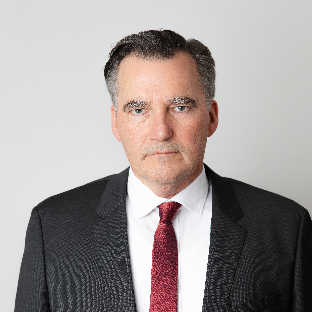A free and independent media is vital for democratic governance, to safeguard against injustice and oppression, and to uphold the rule of law.
Yet the work and personal safety of thousands of professional journalists, whose main goal is to provide us with accurate and unbiased information, is increasingly under peril.
For decades, the voices of journalists have been stifled or suppressed under the guise of libel and defamation laws, as well as national security and counter-terrorism legislation.
My Office is concerned by the rising use of criminal defamation laws to silence criticism, curtail public discussion, and protect the interests of powerful political and economic elites.
And an artillery of new laws in many countries lend themselves to even more abusive restrictions on freedom of speech for the press, including vaguely worded or broadly defined “fake news,” cybercrime or public health laws in the context of the COVID-19 pandemic.
Since 2016, at least 57 laws and regulations have been adopted or amended in 44 countries, containing overly broad language or disproportionate punishments.
A record high of 323 journalists were imprisoned in 2022 worldwide. And a survey conducted in 2020 among 63 investigative journalists working in 41 countries showed that almost three quarters of them had received communications threatening legal action.
Another trend is the frequent use of ‘strategic lawsuits against public participation,’ typically used by people in power and often aimed at journalists to prevent them from reporting on matters of public interest.
The real objective of such lawsuits is not to win the case, but to overwhelm the defendant through protracted legal proceedings and excessive costs – even at the risk of bankruptcy and serious psychological consequences. And they also have a stifling effect, or result in self-censorship, even before a conviction takes place.
I am equally troubled by the mounting economic threats to journalists. From dismissals, job insecurity and pay cuts, to exposure to excessive damages in civil defamation cases, to cuts in public funding and the shuttering of news outlets, these numerous threats impose an enormous toll.
Colleagues,
When the safety of journalists is at risk – whether through censorship, through intimidation or through legal or financial threats – so too is the very foundation of our societies.
We need stronger and more comprehensive national legislation that guarantees media freedom. Any restrictions on freedom of expression need to adhere to the principles of legality, necessity and proportionality, in line with international human rights law.
I encourage all governments to repeal existing criminal defamation laws; to discourage frivolous or vexatious legal actions against journalists; and to adopt laws that allow the early dismissal of strategic lawsuits against public participation, limit the damages claimed, and provide legal support to journalists.
But legislation alone is not enough: we need an enabling environment for journalists, which acknowledges their role working for the public interest.
The safety of journalists needs to be prioritized in national protection mechanisms, as well as national human rights and development plans to achieve Sustainable Development Goal 16.
I also encourage better, and better coordinated, monitoring of threats against journalists. This will improve understanding of the legal and economic threats against them, including in terms of gender implications, and support actions to respond.
Finally, a whole of society approach is needed to advance the safety of journalists – including not just governments, but the private sector, civil society and media companies themselves.
Colleagues,
Today’s expert seminar exemplifies the international commitment to prioritizing the safety of journalists. I particularly admire the exceptional efforts of the many civil society organizations who are working together to this end. The UN Network of Focal Points on the Safety of Journalists and the Issue of Impunity is also conducting vital work.
Next month, as we mark World Press Freedom Day, my Office will focus on the protection of civic space and ensuring the safety of journalists as part of our Human Rights 75 initiative that commemorates the anniversary of the Universal Declaration of Human Rights.
In January, I also called for the release of persons who have been arbitrarily detained, including journalists, and we continue to follow up with States on this crucial matter.
A free media can help guarantee our collective freedoms – protecting journalists must be our collective responsibility. I wish you a fruitful discussion today that will, I hope, identify concrete actions to ensure a safe environment for journalists – where they can work without fear of reprisals or intimidation.
Thank you.








